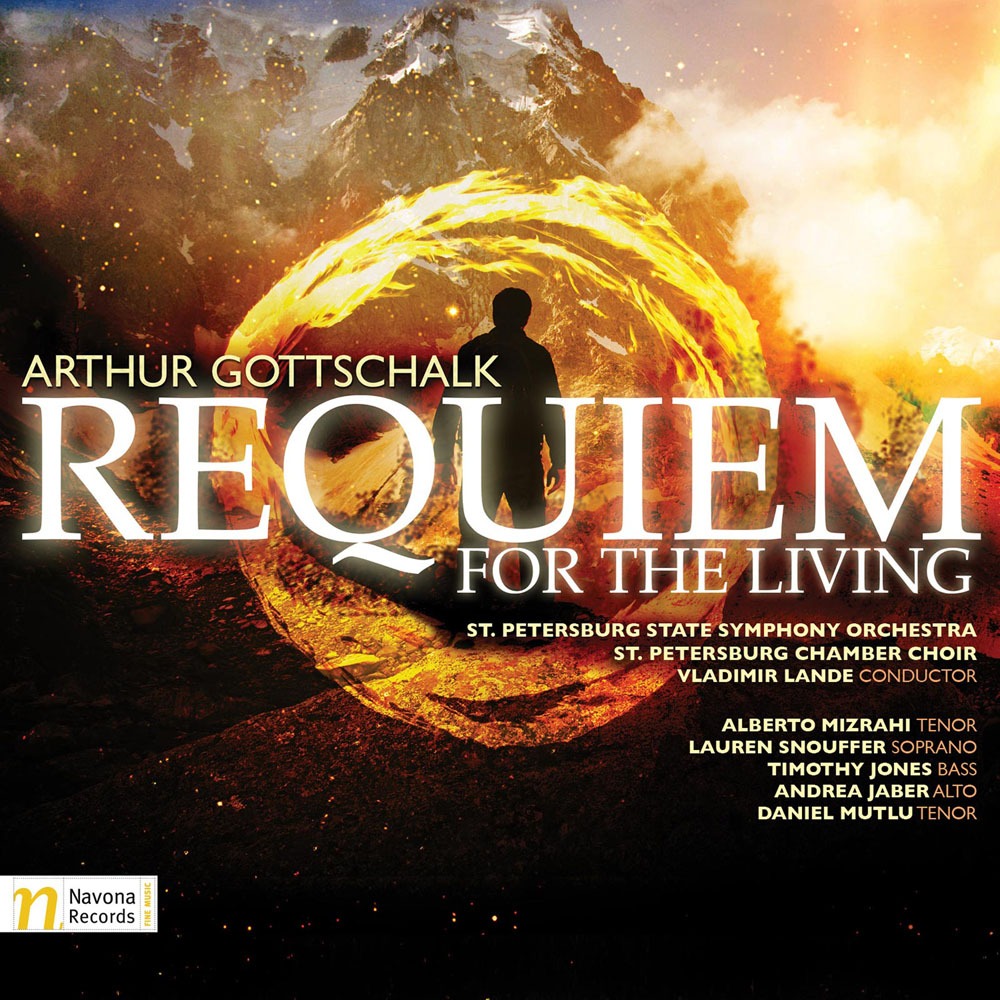
Arthur Gottschalk: REQUIEM: FOR THE LIVING
Originally Published By: Fanfare Magazine
Arthur Gottschalk is an American composer who is Professor of Music Composition and Theory at Rice University’s Shepherd School of Music. His Requiem for the Living takes as its baseline text the traditional Latin Requiem, but seven out of eight movements have inserted texts, from sources as wide-ranging as the Buddha, Mohammad, George Eliot and Duke Ellington. A response to the tragedy of 9/11, there is indeed something apocalyptic in both the forces used and the mode of usage.
The music is gestural, and often can be reminiscent of Orff (this is particularly evident in the opening “Kyrie”, where the inserted text is the Hebrew memorial prayer for the dead). It is also remarkably celebrational, based on the composer’s response to the Ellington quote that “there is no language that God cannot understand”, a line that appears at the end of both the “Sanctus” and the “Benedictus”.
The “Offertorium” is a particularly effective movement, drawing on the style of instrumental Renaissance canzonas and intertwining the Latin text with a quote from the Buddha (“The thought manifests as the word; The word manifests as the deed; The deed develops into habit; And habit hardens into character”). Some might find the explosion of Ellington-based expression at the end of the “Sanctus” needs some used to, but on repeated listening it makes sense in the plurality-based mode of expression chosen by Gottschalk. It certainly sounds, too, as if the singers and players had a ball. The use of Gospel music for the “Libera me” (which actually uses both Bluegraass Gospel and Blues Spiritual) is also effective, and joyous.
The final movement, “In Paradisum”, begins with an extended, and here excellently performed, fanfare. Upward-sweeping strings add to the effect of the punchy choral statements.
The soloists are excellent. The voices of soprano Lauren Snouffer and alto Andrea Jaber intertwine gloriously for the Eliot quote in the “Agnus Dei” (“May I reach that purest Heaven”), while bass Timothy Jones is solid and tenor Alberto Mezrahi revels in the challenges of Gottschalk’s writing. There is, appended, an alternative version of the initial “Introit” with a different tenor soloist (Daniel Mutlu). Mizrahi in the complete performance is strong and imploring, his voice powerful yet a touch strained. Mutlu has more of a baritonal tinge to his tenor and carries a little more authority in his delivery.
Only a few small pieces by Arthur Gottschalk have so far made it to review in Fanfare, so it is good to experience a larger piece. Those who revel in larger choral works will not be disappointed. Recording quality is of the highest throughout.
Colin Clarke (Fanfare)
Related Articles
- April 17, 1994
Recent Articles
Upcoming Events
Upcoming Events
- There are no upcoming events.

